For decades, Kakuzi PLC's iron fist has been crushing the hopes of generations fighting for their birthright—land.
Kakuzi is a multinational conglomerate specializing in agricultural produce and controls 32,900 acres of land in Murang'a, a county 65 kilometers northeast of Nairobi.
Organized communities determined to end historical injustices are challenging Kakuzi’s hold over this vast land.
The National Lands Commission’s (NLC) factfinding mission on March 14, 2024, brought these communities’ sheer courage to the fore.
With a wealth of historical evidence supporting their claim to the land, the communities provided testimonies detailing the brutal displacement they endured from their ancestral homes, orchestrated over the years under cover of darkness by guards employed by Kakuzi.
NLC toured the scenes of these historical human rights violations and interviewed victims.
On September 28, 2018, NLC convened its inaugural public hearing in Thika, prompted by petitions from locals seeking a return to their ancestral land. The Ndula Resource Center and the Kenya Human Rights Commission (KHRC) represented the communities. During the meeting, NLC was implored to visit the extensive land under Kakuzi's control. However, this visit never materialized.
Five years and five months later, in February 2024, another hearing took place in Nairobi, with more petitions from locals urging NLC to act fast and end years of landlessness. Finally, the visit took place on March 14.
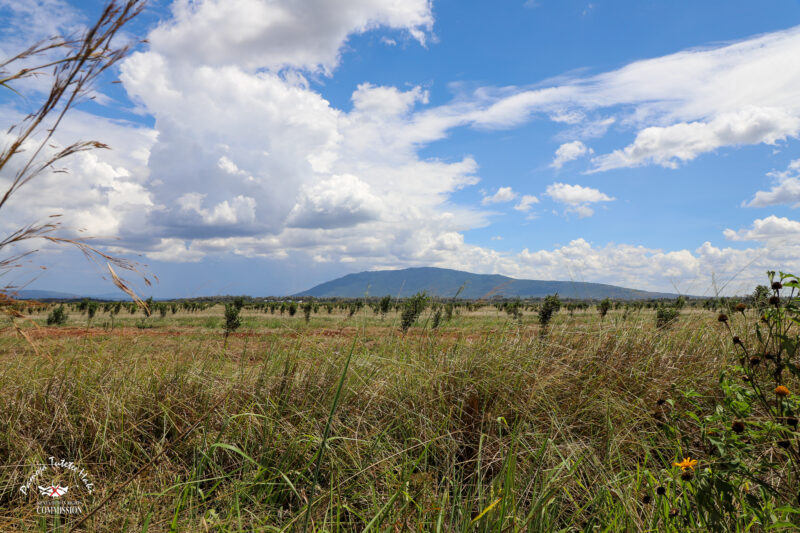
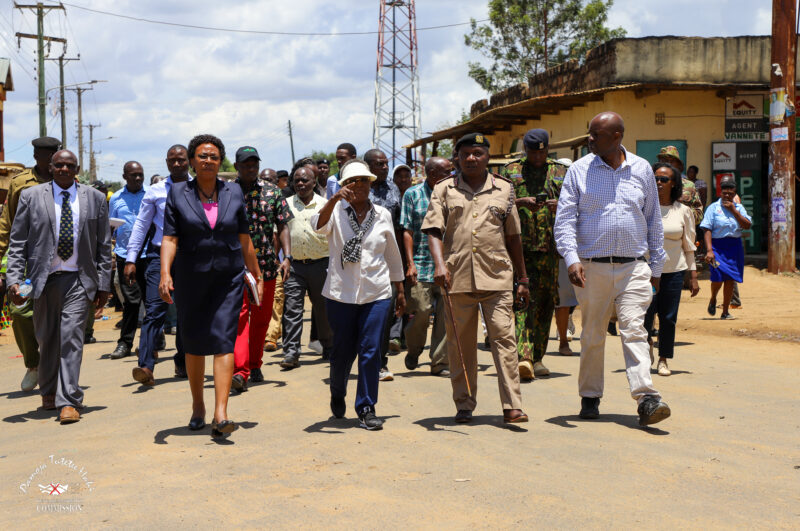
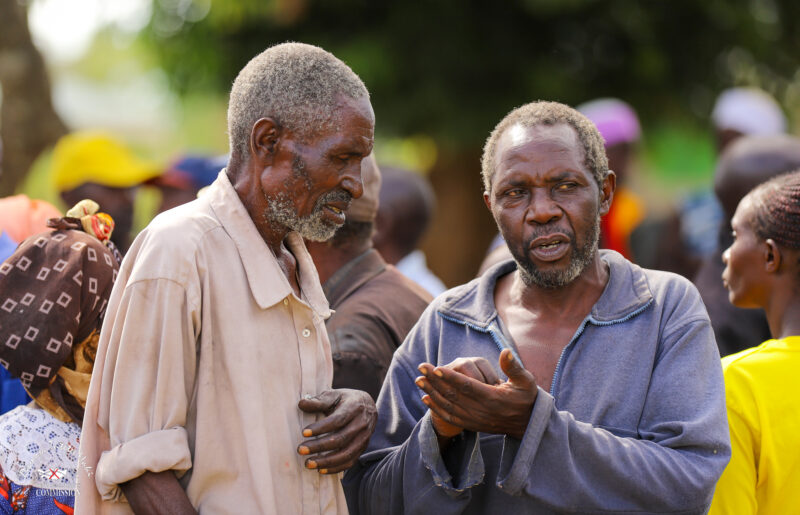
How it started
Between 1902 and 1966, Kakuzi—formerly known as Kakuzi Fibreland Limited—amassed extensive land holdings acquired from former British settlers in Kenya. These settlers had obtained land primarily through legal mechanisms and forceful dispossession during the colonial era.
The British colonial government implemented laws such as the Crown Lands Ordinance of 1902 and the Crown Lands Ordinance of 1915, which allowed for the alienation of vast tracts of fertile land from indigenous communities to European settlers.
Additionally, the British employed tactics such as coercion, fraud, and violent displacement to seize land from local communities, exacerbating the injustice and dispossession experienced by the Kenyan people.
This is the backdrop against which Kakuzi came to possess extensive land holdings in Murang'a. This action left the local population stranded in squatter camps within Kakuzi's territory, with many compelled to toil on its sisal plantations under conditions reminiscent of slavery.
In the early 1960s, Kakuzi relinquished the parcels to the Kenyan government and secured a 999-year lease in 1966. However, these communities were not resettled on their land. Today, descendants of the original farming communities rely on waged labor on Kakuzi farms and endure harsh living conditions.
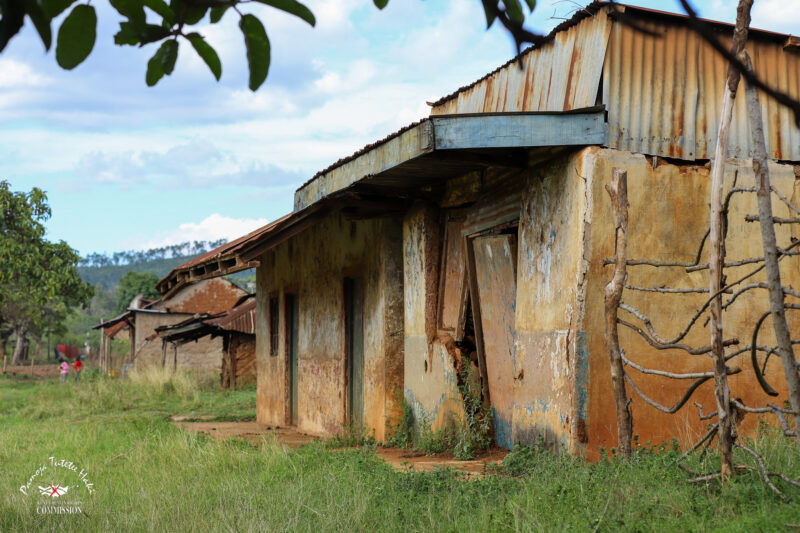
Over the years, communities living on and adjacent to the Kakuzi estate have faced a myriad of serious human rights abuses, including alleged killings, assaults and rapes by Kakuzi guards. In June 2019, some 85 claimants moved to the British courts to sue Kakuzi's parent company, Camellia PLC, based in the UK, for these violations. UK-based law firm Leigh Day, working closely with KHRC and Ndula Resource Centre represented them.
In the wake of this legal proceeding and subsequent revelations of alleged sexual violence by Kakuzi guards, UK supermarket chains Tesco, Lidl, and Sainsbury's suspended their contracts with Kakuzi.
Kakuzi's Makuyu avocado plantation had its Rainforest Alliance certification revoked, preventing the company from exporting its produce. As a result, according to its financial reports, the company experienced a significant setback in its multimillion profits, which plummeted by 52.88 per cent to Sh137.2 million.
Consequently, Camellia PLC reached an out-of-court settlement with the claimants, paying Sh696 million to victims of alleged violence and rape, alongside making remedial investments in the local Murang'a community. Kakuzi committed to establishing and executing an operational-level grievance mechanism to facilitate the fair and prompt resolution of any other allegations of human rights abuses.
Back to factfinding
Yet, one challenge persisted: access to ancestral land, which Kakuzi has adamantly refused to surrender, perpetuating entrenched historical injustices connected to colonization and economic exploitation.
This is the reason behind NLC conducting hearings and visiting Murang'a on March 14, accompanied by a representative from the office of the Attorney-General (AG), the Ministry of Lands, the Murang'a county government, victims of historical land injustices, and officials from Ndula Resource Centre and KHRC.
NLC is responsible for hearing and adjudicating historical land claims. The AG serves as the government's principal legal advisor. Since the land is public, Murang'a County holds it in trust for the people it represents. The Ministry of Land conducts surveys, demarcates boundaries, and issues title deeds, a critical process should NLC order Kakuzi to return the land for resettling squatters and for public utilities. Ndula Resource Centre and KHRC act as the victims’ representatives and continue to hold Kakuzi accountable for human rights violations.
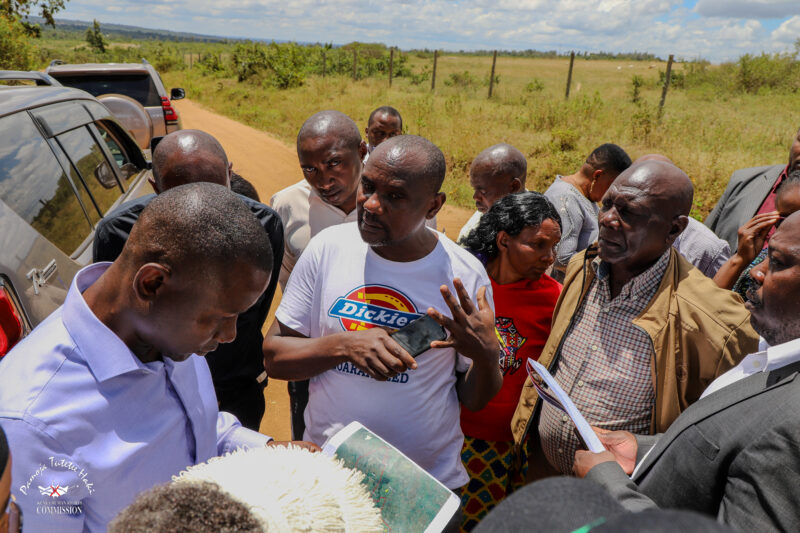
During the factfinding mission, NLC observed firsthand how descendants of the original farming communities live on their land as squatters under the whims of Kakuzi. The company condemned them to rocky, hilly, and infertile terrain. Others were compelled into squatter settlements and labour camps, while a significant number remained internally displaced persons both within and outside the jurisdiction of Kakuzi.
The parcels currently occupied by Kakuzi and in contention are LR10731 and LR11674. Out of 32,000 acres Kakuzi controls, the communities, totaling about 6,200 individuals, demand around 16,000 acres—12,000 from LR10731 and the remainder from LR11674.
On March 14, NLC visited the following land parcels: LR10731/3, LR10731/4, and LR10731/5. Other locations included Ithanga Phase Five, Kakuzi Primary School, Kasioni Dam, Miembeni, Kinyangi, and Kakuzi's macadamia factory and blueberry greenhouses.
In parcel 10731/3, spanning 700 acres, NLC learned that in 1989, Kakuzi gifted the land to its then-general manager, David John Munyae. However, it was revealed to NLC that this land was initially intended for settling squatters.
Kakuzi stated that, in 1970, it donated 250 acres in Ithanga Phase Five to settle 50 squatters. However, NLC discovered that Kakuzi had refused to relinquish the master title deed under LR10731. This prevented the community from processing their individual title deeds, denying them land ownership rights. This mirrored the predicament of Kakuzi Primary School, founded in 1958 and occupying 12 acres, and Kinyangi Primary School, established in 1949 and situated on 12 acres.
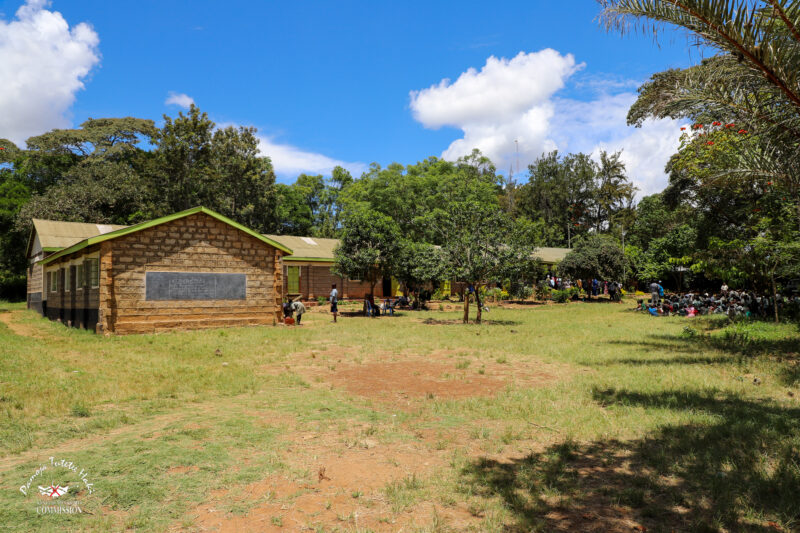
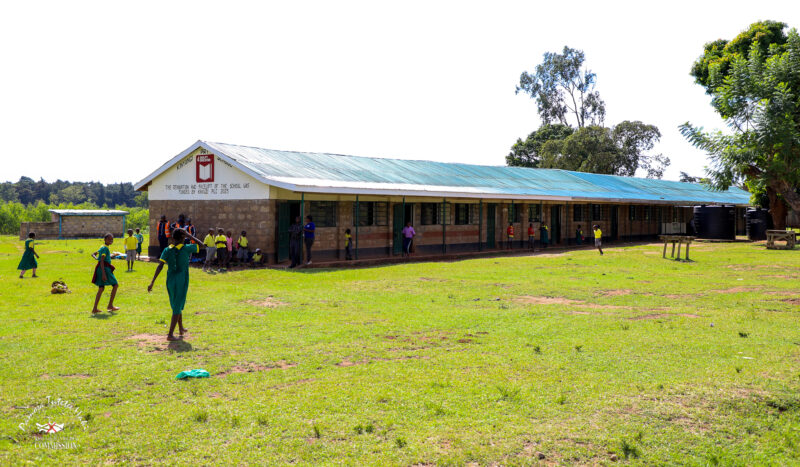
The plight extended beyond a lack of title deed for Kakuzi Primary School. Students here endure a daily trek of 16 kilometers between home and school. Why? When these students' parents resided near the school, Kakuzi reportedly evicted them, compelling them to settle in Kakuzi Hills, eight kilometers away. To reach the school, students must traverse forests and navigate fields infested with snakes and other hazardous wildlife.
In Kinyangi, public institutions on a 50-acre administrative land lack title deeds. These include a chief’s office, a hospital, and a Ministry of Transport and Public Works site. Additionally, the Kinyangi Trading Center, covering five acres; the Kinyangi market, also under five acres; and three churches totaling 15 acres, similarly lack title deeds. How a private company donated land to government institutions and won’t release title deeds to them remains most baffling.
Areas yet to be visited
Areas yet to be visited under LR10731 include Kituamba-Kaloleni, where Kakuzi allegedly orchestrated a brutal eviction in December 1989, torching houses, maiming people, and destroying crops.
Also awaiting inspection are the Kituamba police station, erected in 1948, the Kituamba water supply station, constructed in 1976, and the New Nginye Dam—hailed as one of the largest in East and Central Africa—claimed by the Kaloleni and Kinyangi communities.
Should NLC proceed to Kakuzi Hills, the commission will witness firsthand how communities inhabit condemned land. Residents reported that Kakuzi coerced them onto the hills following their eviction from more fertile land downslope.
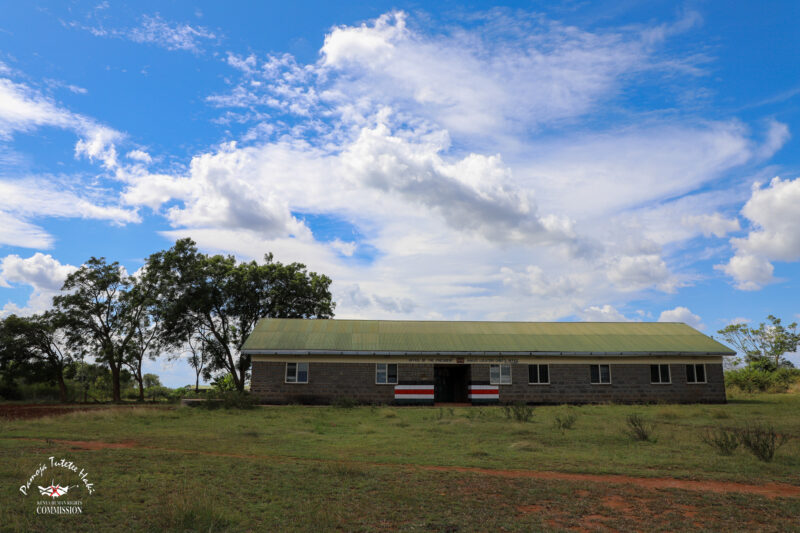
In Kitito, Kitito Boys' and Girls' Secondary Schools, established in 1968, lack title deeds for the 25 acres of land they occupy. Similarly, Kitito Primary School, built in 1932 and covering 12 acres, also lacks a title deed. On September 2, 2016, these schools gained attention when another instance of violence by Kakuzi guards was captured on camera. Pupils protesting an alleged land-grabbing attempt on their school grounds were met with violence from Kakuzi guards, with police officers also involved. Video footage showed officers charging at children and assaulting journalists.
The most recent violent evictions occurred in Milimani-Kakuzi Hills, reportedly under the supervision of former Kakuzi general manager David John Munyae. When the NLC visits, it will witness the aftermath of the July 1999 brutality, which left Gaichanjiru village in ruins.
Further, Kakuzi is accused of restricting public access to rural road number 2315.
In 2019, the NLC ordered that Kakuzi's land leases not be renewed until all grievances related to historical land injustices are resolved. The NLC said current leases should revert to 99 years from 999. However, the Environment and Lands Court in Nairobi overturned this order last year.
https://youtu.be/J7mvQmyYujA
Demands
KHRC and Ndula Resource Center urge NLC to accelerate its hearings to resolve the longstanding historical land injustices suffered by Murang’a communities. Additionally, both organizations demand that Kakuzi resettles all squatters and surrenders the master title deed to enable communities to process their title deeds. We also call for the unfettered and unconditional opening of all public roads that remain closed by Kakuzi.

